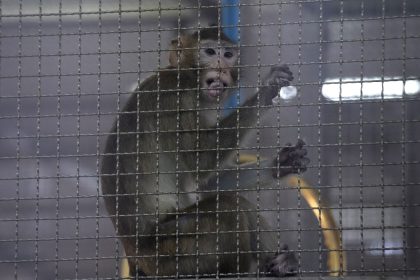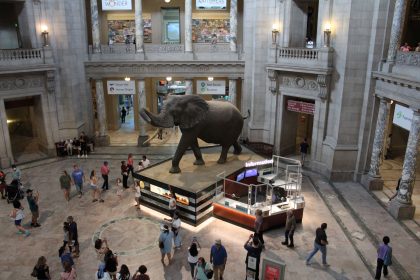Canine Brain Wiring Influenced by Human-Driven Breeding Practices

Areas of the genome related to brain development harbor variants that may account for behavioral differences among different dog lineages, according to researchers at the National Institutes of Health.
The study, funded by the National Human Genome Research Institute, was published in the journal Cell.
It involved a number of citizen science projects that used DNA samples and surveys collected from dog owners around the world.
The researchers found that the genomic differences among dog breeds are related to the development of their nervous system. For dogs that herd sheep, the genomic differences involve how brain nerve cells, known as neurons, organize themselves to form neural circuits during the early stages of development.
Some of the genes associated with the different dog lineages may relate to genes that are involved in behavior of other species such as humans. These results suggest that dogs and humans may have similar biological pathways that give rise to the range of differences in brain function and behavior found within a species.
“The results of this study may point us toward how differences in the human genome can contribute to behavioral diversity among humans. Further research can help us draw a stronger link between genes that are important for behavior in dogs and genes that may play a role in human behavioral conditions,” said Elaine Ostrander, Ph.D., distinguished senior investigator for the Cancer Genetics and Comparative Genomics Branch within the National Human Genome Research Institute’s Intramural Research Program.
Ostrander is also the corresponding author on the study, which was led by Emily Dutrow, Ph.D., a postdoctoral research fellow in her group.
At the outset of their research, Ostrander’s team first mapped out the diversification of dog lineages over time.
They used genomic data from over 4,000 domestic, semi-feral and wild dogs collected from various available data sets. These data sets included results of whole-genome sequencing, which analyzes the entire genome, and single-nucleotide polymorphism arrays, which detect a subset of the variation in a genome.
The researchers also used behavioral data from a University of Pennsylvania School of Veterinary Medicine, Philadelphia, survey of over 46,000 dogs that assessed characteristics such as trainability, energy and fear towards strangers.
“We identified 10 major canine lineages and behavioral traits that correlate with these lineages. By looking at the most heavily selected breeds, we can see how each lineage of dog breed is unique in its genomic variation and behavior,” Ostrander said.
“One of the most surprising findings was that many of the genomic changes that define the major dog lineages can also be found in modern wolves. This indicates that humans co-opted ancient variations among wild ancestors of dogs to create unique types of dogs suited for performing specific tasks,” Dutrow said.
For thousands of years, selective breeding has shaped dog breeds that are specialized for different tasks, including hunting, herding and guarding. For example, sheepdogs (such as border collies) instinctively know how to herd livestock with minimal training.
How different dog breeds have distinct behavioral traits and personalities — and how these characteristics trace back to their genomes — have been largely unknown until now.
The challenge was parsing out the massive collections of data. By repurposing tools used in studies that, for example, examine how stem cells develop into different specialized cells, the researchers reconstructed how canine lineages developed.
“To study the genomic basis of breeds, researchers typically compare different breeds with different behavior. But the difficulty with that is finding meaningful results among the variation in dog behavior,” Ostrander said. “Instead of looking at a snapshot in time, our study mapped out how dog breed lineages diversified over hundreds of years and explains how the different breeds we see today are a result of human selection.”























